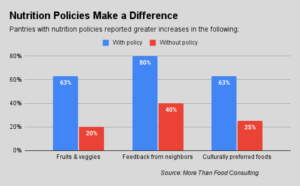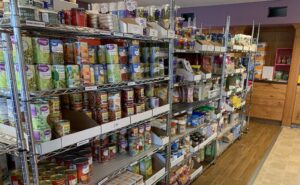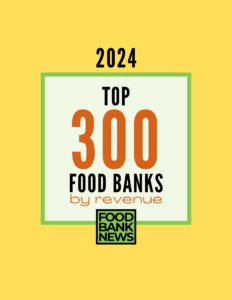Food banks have probably noticed more healthcare organizations reaching out to them for help in addressing food insecurity. That’s because healthcare is being charged with identifying and addressing all the non-clinical reasons their patients are unhealthy, like a lack of housing or nutritious food. (Food Bank News wrote about that trend here.)
Healthcare providers actually have a wide range of partnership options when it comes to addressing food insecurity and nutrition in their communities. A look at how Chorus Community Health Plans in Wisconsin is partnering up offers insight into the types of solutions being pursued, and how the hunger relief community may or may not fit into them.
Chorus, which insures Medicaid recipients, as well as individuals and families covered through the Wisconsin Exchange, has been partnering with Foodsmart, a provider of telenutrition and food benefits management, since July 2021. Chorus members using Foodsmart can meet online with dietitians who provide nutrition counseling, meal planning, and, if appropriate, SNAP enrollment assistance. Members can use the FoodsMART app to search online shopping services (including those that accept EBT) for the lowest-cost ingredients and arrange for home delivery.
Chorus makes it worth members’ time to focus on their nutrition. It puts dollars into a shopping account for members who meet with a dietitian — $50 for an initial consultation and $25 for each follow-up session.
The expense is worth it, given the savings Chorus is getting, according to a recent study by Foodsmart that compared Chorus’s claims costs for participants the year before and after enrolling in Foodsmart. Versus a control group, Chorus had an overall savings of $43 per member per month for Medicaid members and savings of $75 per member per month for Exchange members. For members with chronic conditions like diabetes, hypertension and hyperlipidemia, Chorus’s claims savings ranged from $62 per member per month to $871 per member per month.
Plus, the service is popular. To date, more than 10,000 households with coverage through Chorus have used the telenutrition service or the app. “If we had 1,000 of anything, we’d be happy, let alone 10,000,” Chorus President Mark Rakowski said.
While Chorus had pursued traditional Food as Medicine strategies such as medically tailored meals, these solutions were “very episodic,” said Chorus President Mark Rakowski, and didn’t necessarily have a long-term impact on food instability. “We’ve done things like working with farmers’ markets to do a SNAP dollar match and doubling people’s money. We obviously do a lot of work with food pantries and promoting them to our members. But we were looking for a solution that would be applicable to the entirety of our population. Not only our Medicaid membership,” Rakowski said.
Chorus continues to provide medically tailored meals to hundreds of members through case managers, Rakowski said. But, he noted, “we cover 140,000 people. It’s a really small percentage.” A broader focus on nutrition, he added, is “a more sustainable solution.”
Rakowski pointed to another benefit of the FoodsMART app – members avoid the in-store temptation of bad-for-you foods. “You’re getting members getting the food that meets their dietary needs, their nutritional needs, at the lowest cost, and they’re avoiding some of those temptations.”
Foodsmart’s Chief Medical Officer, Dr. Dexter Shurney, said Foodsmart is filling a need food banks and pantries aren’t positioned to meet. Foodsmart’s national scope, he noted, allows insurers to serve their entire membership by contracting with a single entity. “If you’re dealing with local food banks, imagine how many of those contracts you’d have to be involved in.”
In addition, Shurney said, “We’re a provider organization, at the heart of it. We’re providing registered dieticians, health coaching, and launching programs to help individuals actually in some ways reverse their disease based on Food is Medicine. There’s a clinical aspect that I don’t believe most food banks or pantries actually fulfill. They’re providing sustenance, but they’re not providing that clinical oversight that we also do.”
Rakowski does see a role for more traditional Food as Medicine efforts, such as medically tailored meals, within its partnership with Foodsmart. “We’re trying with Foodsmart to figure out a way to build some of those community services into that food market,” he said, citing Food for Health, a Milwaukee-based medically tailored meal provider, as an example. “I think there’s a place within Foodsmart for that – to make it more one stop shopping,” he said.
He added, “We didn’t do this because we knew we’d have a rate of return, we did this because we felt it was the right thing to do. The rate of return is certainly important, but the level of engagement from our membership and from our families has proven this was something that was needed in the market.” – Amanda Jaffe
Amanda Jaffe is a writer and former attorney with a deep interest in organizations and mechanisms that address food insecurity. Her online publication, Age of Enlightenment, is available on Substack, and her essays and articles may be found at www.amandajaffewrites.com.
Like what you’re reading?
Support Food Bank News








